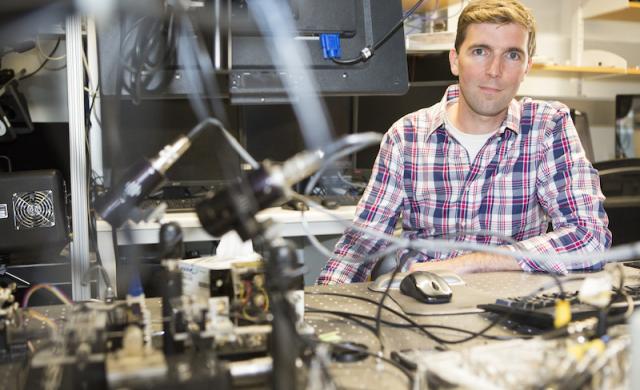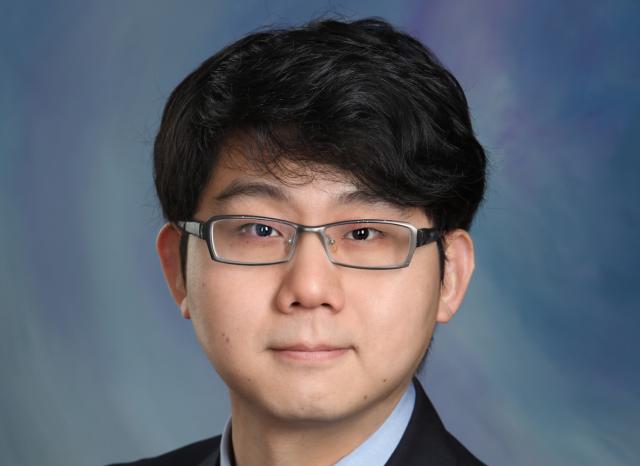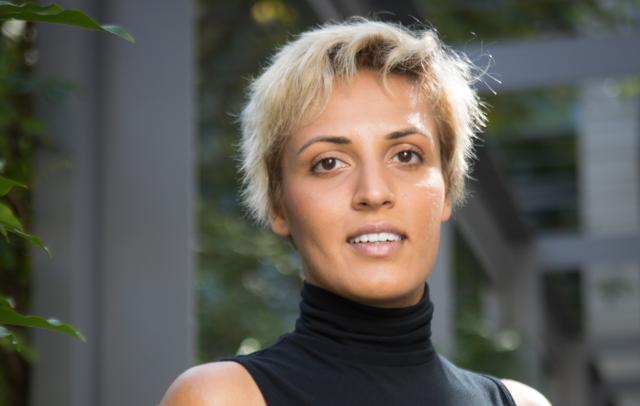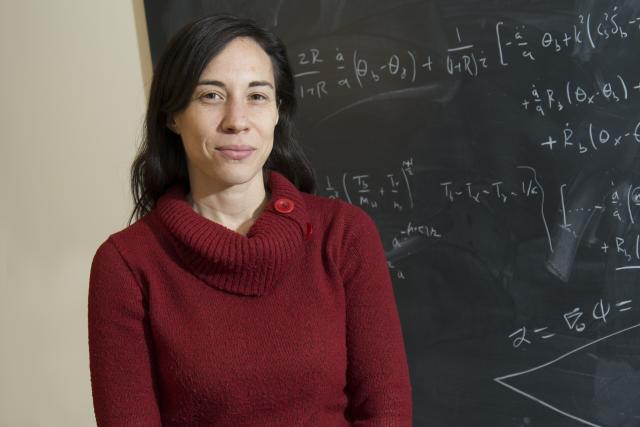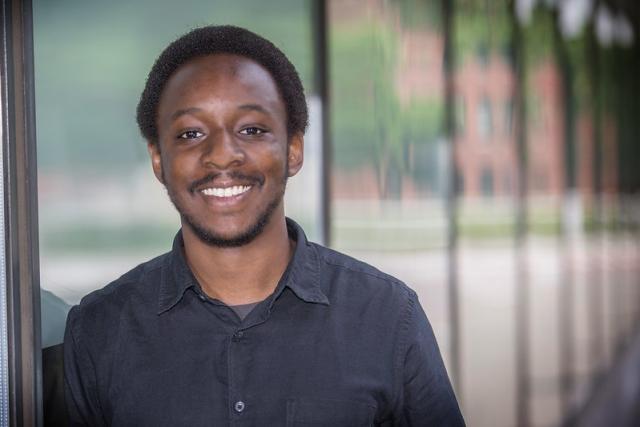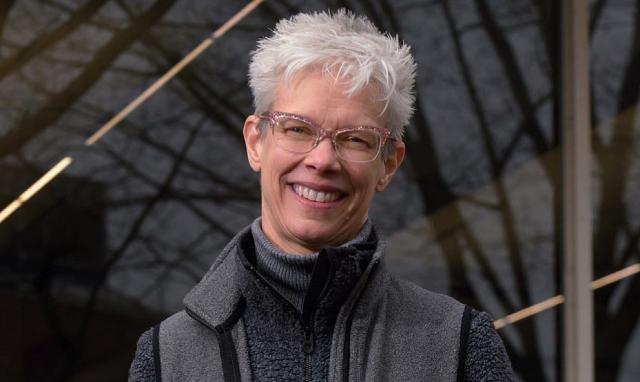For Robert Wood, intellectual curiosity runs in the family.
In sixth grade, Robert Wood was asked what he wanted to do when he was older. His answer, “Get a PhD in Aerospace Engineering.” Wood believes this response was heavily influenced by his grandfather, a Yale graduate who became an academic and a civil engineer. Witnessing his grandfather’s passion for learning and curiosity prompted Wood to follow a similar path. He took his talents to UC Berkeley where he obtained a PhD, not in Aerospace Engineering, but rather Electrical Engineering and Computer Sciences.
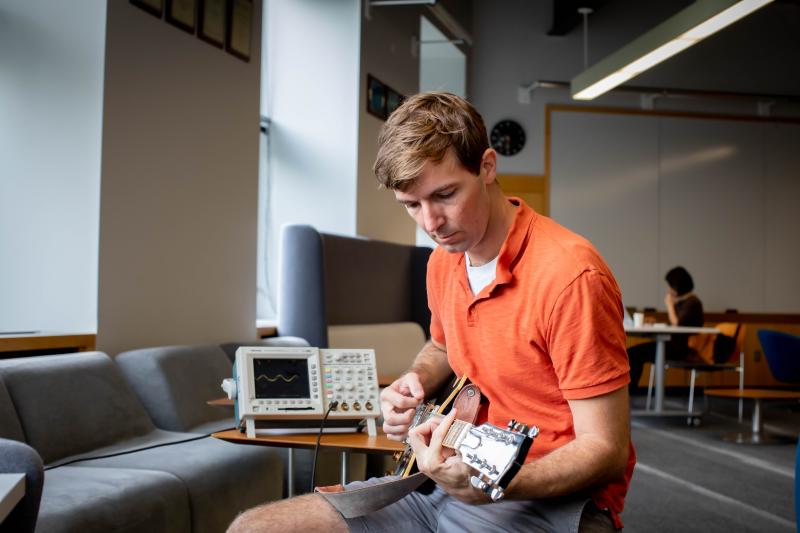
Robert Wood playing a guitar. Rose Lincoln, Harvard.
Wood’s knack for learning and interest in research eventually brought him to Harvard. He is well known around campus for his work in robotics. While at Berkeley, Wood recognized that he wasn’t interested in focusing on a singular field of study, “I didn’t want to just study one very narrow thing and so robotics, being inherently quite broad, had the characteristics I was looking for.” Wood, who explores numerous facets of robotics at the University, distilled his research into main two categories. Firstly, how can robots be designed to interact with more natural environments and be safe around humans? Secondly, how can small-scale robots be built and applied to fields such as biomedicine?
When not in the lab, Wood is in the classroom teaching courses that are informed and influenced by his research interests. Wood is particularly passionate about Gened 1080 How Music Works: Engineering the Acoustical World. The uniqueness of this course revolves around the fact that it’s a hands-on approach to learning– students build and create instruments, compose music, and perform experiments that explore the intersections between music and engineering. Wood emphasizes the importance of posing a question and answering it through creativity, exploring with one’s senses, and countless repetitions of trial and error.
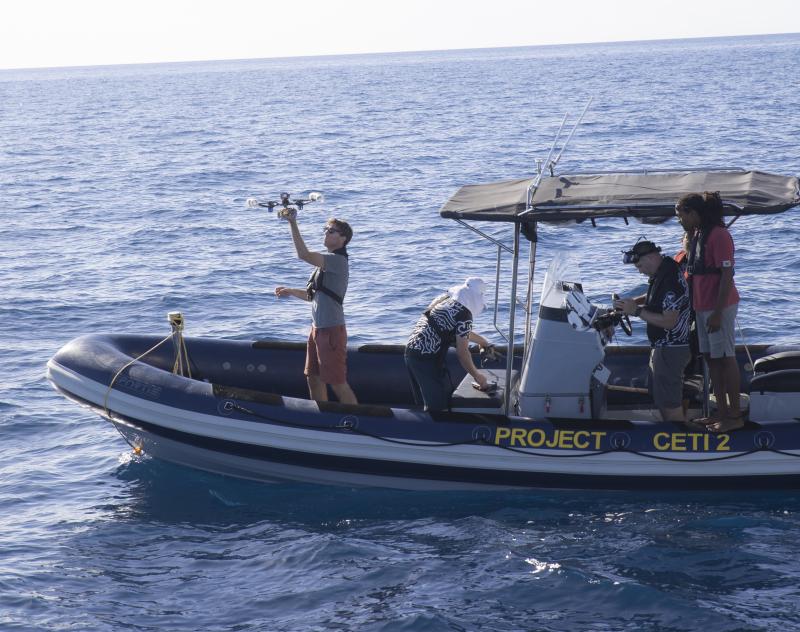
Robert Wood on a boat with a drone. David Gruber, Project CETI
This philosophy of learning seems to have been adopted by Wood over time. He feels strongly about the process of learning and how one can learn more about themselves and their work through failure.
“Making mistakes and learning from them is an absolutely essential part of the learning process.” He continued, “At Harvard, I feel like that needs to be reinforced. I feel that students are used to getting the right answers but I think there are a lot of lessons that failure teaches, which are absolutely essential.”
Robert Wood teaches several courses in the School for Engineering and Applied Science, including “Microrobotics and Bio-inspired Autonomous Robotic Systems,” “Advanced Topics in Robotics Research,” and the general education course “How Music Works: Engineering the Acoustical World,” which can be viewed in the Harvard course directory.

